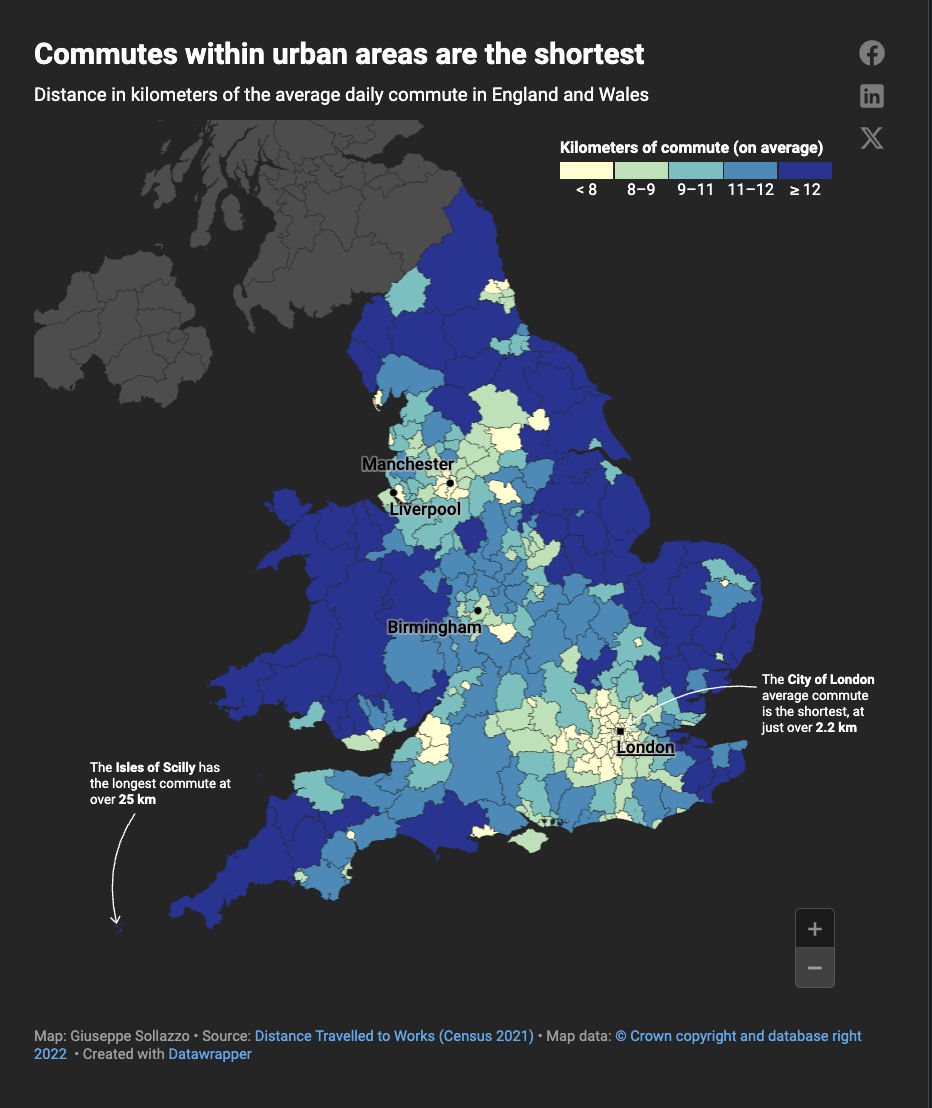Commutes within urban areas are the shortest

A couple of weeks ago I saw this interesting map of commute times in Germany made by Datawrapper’s co-CEO David Kokkelink, noting how commutes into major cities are the longest in Germany.
I decided to look for the same data about the UK – I found it for England and Wales, released as part of Census 2021.
Similarly to Germany, the distance in kilometers of the average daily commute in England and Wales seems to suggest that within urban areas people commute for shorter stretches, suggesting that they live closer to their place of work.
Methodology
- I downloaded table TS058 from Census 2021, titled “Distance travelled to work” from the Office for National Statistics.
The dataset lists the number of responses for a series of categories:
- Does not apply
- Less than 2km
- 2km to less than 5km
- 5km to less than 10km
- 10km to less than 20km
- 20km to less than 30km
- 30km to less than 40km
- 40km to less than 60km
- 60km and over
- Works mainly from home
- Works mainly at an offshore installation, in no fixed place, or outside the UK
- From the totals, I purged the “does not apply”, ant the “works mainly at an offshore installation”. Then I set the numeric value for each to be: 0 km for working from home, 2 km for “less than 2km”, 5km for “less than 5km”, and so on. I used 100 km for the “60km and over” value.
This might not be the best, and I’m open to feedback on how to make the calculation more statistically accurate.
- I calculated the weighted average for each Local Authority, multiplying the distance by the fraction over the total (the fractions total is 1, excluding the purged values)